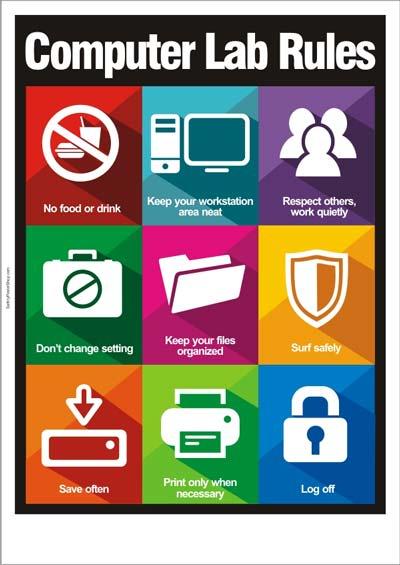Table of Contents
- Personal Awareness and Situational Vigilance for Campus Safety
- Effective Use of Technology and Safety Apps to Stay Protected
- Building a Reliable Network of Friends and Campus Resources
- Safe Practices for Nighttime Travel and Dormitory Security
- In Retrospect
Personal Awareness and Situational Vigilance for Campus Safety
Awareness of your surroundings is a fundamental skill that every student should master to maintain personal safety on campus. It goes beyond simply looking around; it involves understanding the normal rhythm of your environment-knowing where people usually gather, identifying poorly lit or isolated spots, and recognizing unfamiliar individuals or behaviors that stand out. Staying alert can help you anticipate potential threats and make informed decisions about your route and companions. Digital distractions like phones or headphones should be minimized, especially in less populated areas, to keep your senses sharp and ready to react.
Developing a proactive mindset means being prepared to act, not just react. Always have a plan for what to do if you feel unsafe, such as locating the nearest security stations or familiarizing yourself with campus emergency numbers. Consider these key habits to enhance your situational vigilance:
- Travel in groups whenever possible, especially after dark.
- Inform a trusted friend or family member about your whereabouts and expected arrival times.
- Trust your instincts; if something feels off, remove yourself from the situation immediately.
- Carry personal safety devices such as whistles or alarms to alert others if needed.
- Be mindful of entrances and exits in every building you enter.
Effective Use of Technology and Safety Apps to Stay Protected
In today’s digital age, leveraging technology can significantly enhance personal security on campus. Students are encouraged to use location-sharing features available on smartphones to keep trusted friends or family members informed about their whereabouts, especially when traveling alone at night. Additionally, many campuses now integrate emergency alert systems with mobile apps, allowing students to quickly report suspicious activity or request immediate assistance at the tap of a button. This seamless connectivity between students and campus safety resources adds an important layer of protection.
When choosing safety apps, look for ones that offer features such as:
- Real-time GPS tracking for continuous location updates.
- Instant alert notifications sent to selected contacts.
- Fake call options to defuse uncomfortable situations.
- Activity monitoring that allows a trusted contact to follow your route until you reach your destination safely.
Regularly updating your apps and ensuring your phone is fully charged are small yet crucial habits that maximize the effectiveness of these tools. By incorporating technology mindfully, students empower themselves to navigate campus life with greater confidence and peace of mind.
Building a Reliable Network of Friends and Campus Resources
Surrounding yourself with trustworthy individuals on campus is one of the most effective ways to boost your personal safety. Cultivating a network of friends who look out for one another creates a natural support system that can offer help in unexpected situations. Consider forming study groups or joining campus clubs where connections can develop organically. These relationships are not only valuable for academic growth but also enhance your safety by ensuring there’s always someone aware of your whereabouts.
Beyond friendships, tapping into campus resources can be a game-changer when it comes to staying secure. Most universities offer an array of services designed to keep students safe, such as campus security escort services, emergency call stations, and counseling centers. Make it a habit to familiarize yourself with these resources and keep emergency numbers saved on your phone. Coupling your personal network with institutional support creates a comprehensive safety net that empowers you to navigate campus life confidently.
Safe Practices for Nighttime Travel and Dormitory Security
When moving around campus after dark, vigilance is your best ally. Always choose well-lit, populated routes instead of shortcuts through isolated areas. Consider walking with a group or using campus escort services if available. Keep your phone easily accessible but avoid distractions like headphones that can impair your awareness of your surroundings. Carrying a whistle or a personal alarm can also provide an added layer of security in case of emergency. Remember, staying alert and trusting your instincts are key components of personal safety when navigating campuses at night.
Securing your dormitory space effectively is just as critical as cautious travel. Always lock your door, even if you’re stepping out briefly, and don’t prop open common entrances. Share access to your living area only with trusted roommates and avoid lending your keys or access cards. For added protection, consider a doorstop alarm or portable security lock designed specifically for dorm room doors. Maintaining a secure living environment helps foster peace of mind, ensuring you can focus on your studies without unnecessary worry.
- Use well-lit and familiar paths for nighttime travel.
- Travel with friends or utilize campus safety escort services.
- Keep mobile devices handy but be mindful of surroundings.
- Lock dorm doors consistently and do not share keys indiscriminately.
- Consider portable security devices for enhanced dorm safety.
In Retrospect
Staying safe on campus is a responsibility every student should take seriously. By adopting these top personal safety habits, you can create a more secure environment for yourself and those around you. Remember, being aware, prepared, and proactive not only protects you but also empowers you to navigate campus life with confidence. Prioritize your safety, stay connected, and never hesitate to seek help when needed-because your well-being matters most. Stay safe out there!Check Our Other Blogs
- StunGun – Your Trusted Source for Stun Guns, Laws, and Self-Defense Tips
- PepperSprayLaws – Your Trusted Resource for Pepper Spray Information
- StunGunLaws – Your Trusted Guide to Stun Gun Legality and Safety



